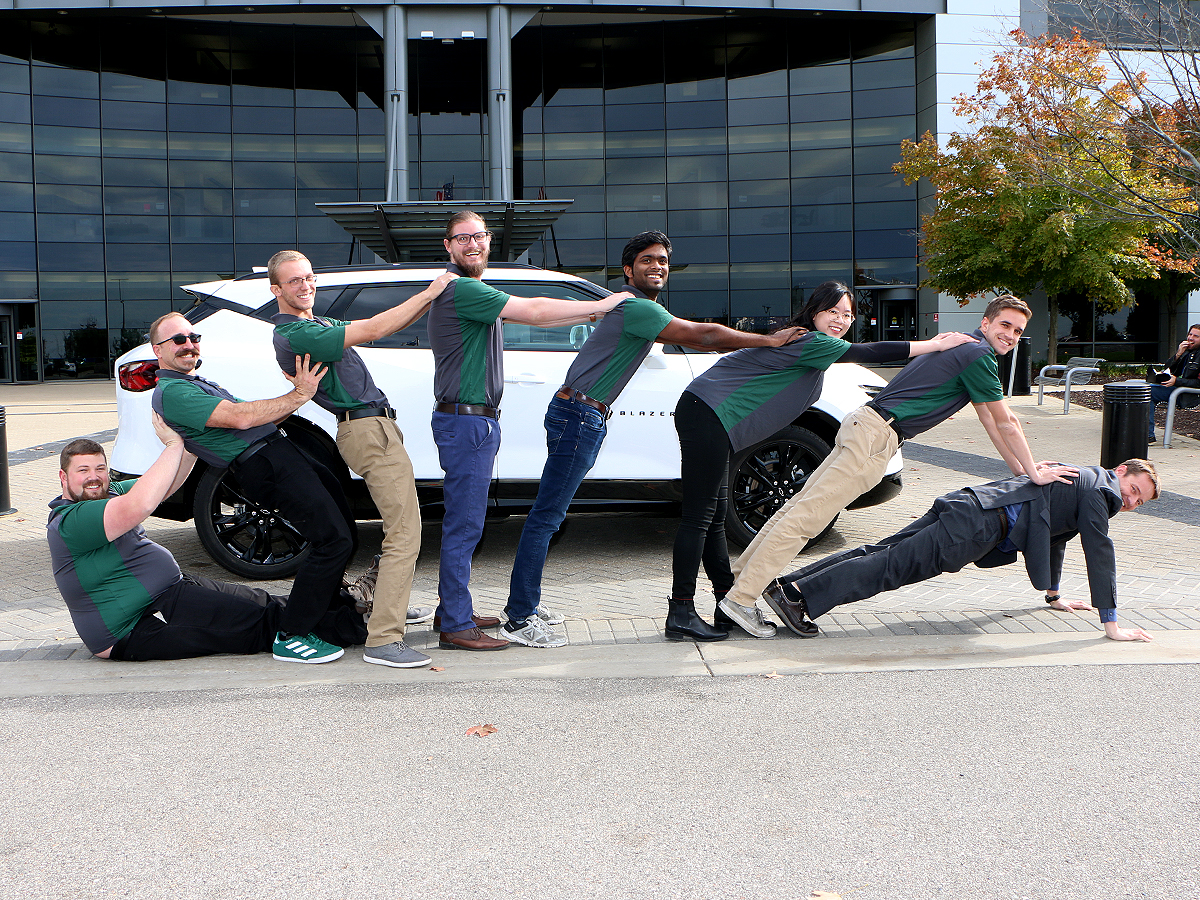
Colorado State University is among 12 teams to join the EcoCAR Mobility Challenge, the fourth in a series of Advanced Vehicle Technology Competitions sponsored by General Motors (GM) and the U.S. Department of Energy. Changing the philosophy from previous years, the four-year competition will focus on vehicle autonomy as teams implement prediction and sensing systems to improve safety and fuel economy, specifically for the carsharing market.
This year, the team will be laying the groundwork for the design of the car, and deciding which components and architecture will be used. They will propose two final designs to the competition organizers, who will have to sign off on the option the team will pursue. At the end of the first year, the team will receive the car they will be working on for the following three years of the competition. The model? A 2019 Chevrolet Blazer.
The previous EcoCAR 3 competition had students modify a Chevrolet Camaro to become more fuel-efficient.
By the end of the new Mobility Challenge, the SUV should be equipped with Society of Automotive Engineers Level 2 Automation, successfully performing functions like lane keep assist, emergency stopping, and obstacle navigation. The competition is accelerated this time around, with teams expected to get their vehicle in proper driving condition by the end of year two, rather than by the end of year three in past versions of the competition. Year four should be used explicitly for implementing automated functions.
Automotive engineers in training
The competition not only aims to improve vehicle technology, but also to develop the next generation of automotive engineers. Teams follow the GM multi-year vehicle development process, and students have access to the same tools used by industrial automotive engineers.
“EcoCAR is all part of an ecosystem of training, education, research, and industrial outreach,” said Tom Bradley, one of the team’s faculty advisors. “Students have the potential to enter the automotive industry with this experience and play a leadership role in vehicle autonomy.”
For GM, EcoCAR serves as a workforce development program. The competition generates hundreds of students out of CSU and other participating schools that have key skillsets in high demand by automakers, like electrification, fuel economy, modeling, simulation and controls, and vehicle autonomy.
Gabe DiDomenico, systems engineering graduate student, participated in EcoCAR 3 as an undergraduate student and is serving as the team’s project manager this year. His experience as a member of the EcoCAR 3 team helped him secure a job with GM as a controls engineer, where he’ll work after he graduates in May.
“EcoCAR was the catalyst for me being recruited by GM,” said DiDomenico. “The competition helps you network with different company sponsors and mentors, and it’s a good tool to help you get a job when you graduate.”
As they begin working through the first year of the competition, the CSU team will be able to leverage expertise from a group of faculty advisors that includes Bradley, Bret Windom and Jason Quinn from the Department of Mechanical Engineering; Sudeep Pasricha from the Department of Electrical and Computer Engineering; and Indrakshi Ray from the Department of Computer Science. EcoCAR is a multidisciplinary project and is open to undergraduate and graduate students across campus interested in automotive research.
If you are interested in joining the CSU EcoCAR Mobility Challenge team, e-mail Jason Quinn.
Read more about research at CSU.